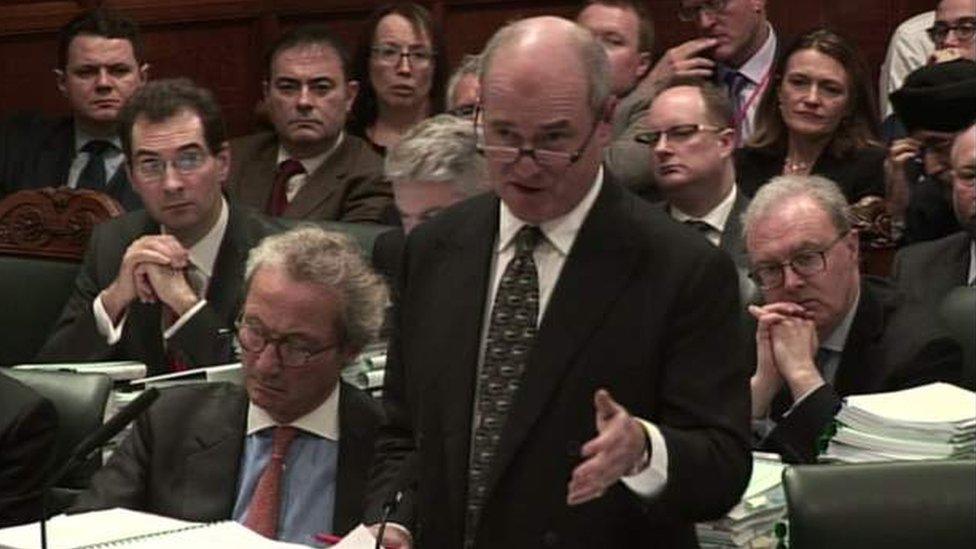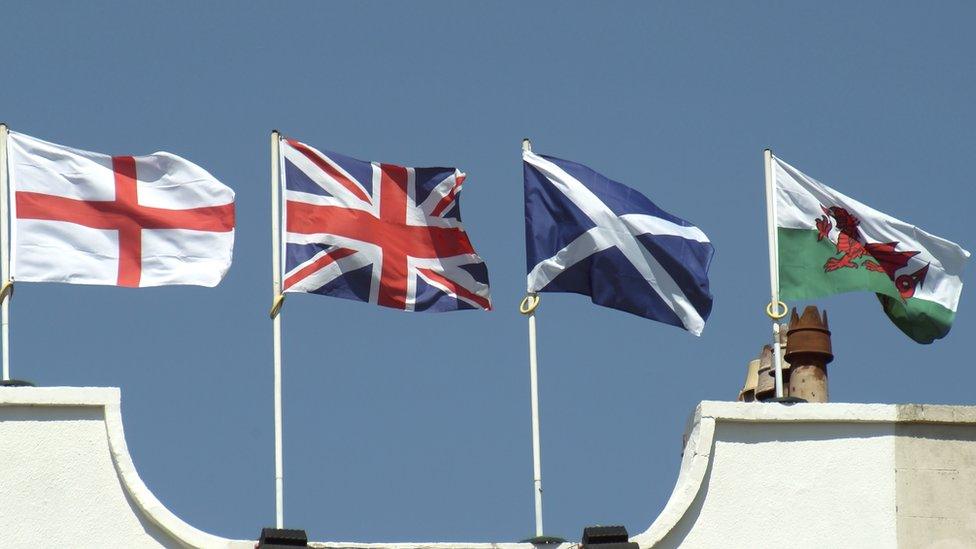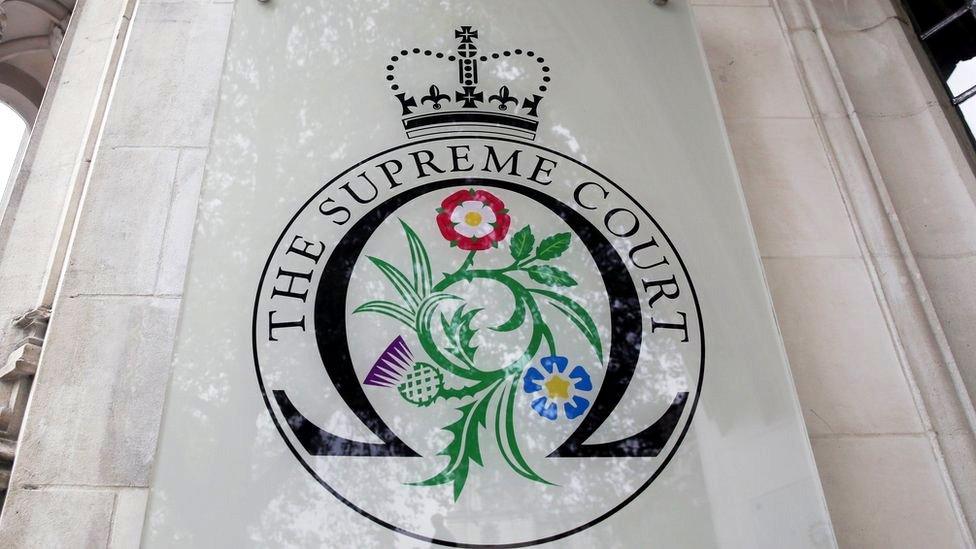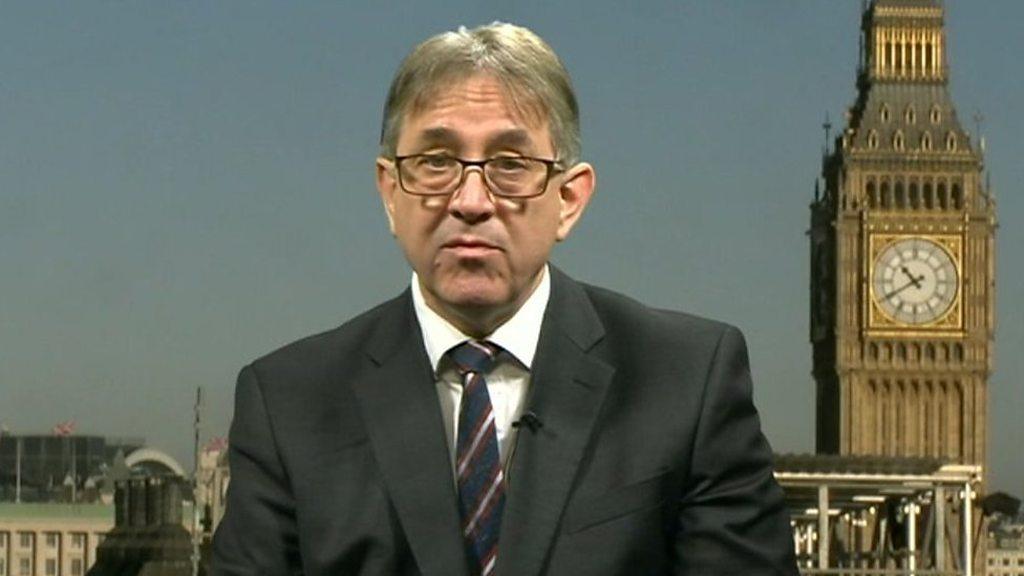Brexit at Supreme Court: Wales 'not trying to stop process'
- Published
Richard Gordon QC says the issues at stake "go far beyond Brexit"
The Welsh Government is not trying to stop Brexit, its lawyer Richard Gordon QC has told the Supreme Court.
He was speaking in the UK Government appeal against a High Court ruling that it needs the approval of MPs to trigger the Article 50 process to leave the EU.
Mr Gordon said the constitutional issues at stake "go far beyond Brexit", such as the legal basis for devolution.
The UK Government denied using royal prerogative to give notice to leave the EU undermined the rule of law.
The Welsh Government has been allowed by the Supreme Court to have its case heard at the appeal, alongside a number of other parties including the Scottish Government.
It comes after MPs voted on Wednesday to back the government's plan to start formal talks on Brexit by the end of March next year.
Presenting the Welsh Government's view to the court on Thursday, Mr Gordon said: "The Brexit vote split the United Kingdom - it split it into four parts.
"We have absolutely no quarrel with the vote - it is a United Kingdom vote and it's a majority for the implementation of Brexit.
"But the point is this - it is almost the most divisive political event that has happened over the last several decades - and who is going to judge what happens next?
"According to law, in our submission - whether one approaches this matter from the perspective of the dispensing principle or whether you approach this matter from the perspective of the common law - it must be Parliament."
BBC Wales Parliamentary correspondent David Cornock reports on the Welsh intervention
Mr Gordon claimed a "child of six" could see the flaws in the UK Government's argument, saying that while it could use royal prerogative to make and unmake treaties, it could not "dispense with laws passed by Parliament".
Quitting the EU without consulting Parliament, he said, could "crucify human rights".
In the run-up to the Supreme Court hearing, the Welsh Government's top legal advisor - Counsel General Mick Antoniw - argued that a "constitutional principle" was at stake.
The Pontypridd AM claimed that allowing the UK Government to trigger Article 50 would "modify the competence of the National Assembly for Wales and the Welsh Government" in such a way that required the approval of MPs.
A Welsh Government spokesman said: "While Brexit will happen, the UK Government cannot trigger it by overriding the British constitution.
"They need to act within the law."
However, the UK Government rejected this argument in a written submission, external to the Supreme Court, accusing Mr Antoniw of making a "tortuous attempt" to make a connection between the status of EU law and the legal basis for Welsh devolution.

James Eadie said the UK government insisted on its right to conduct foreign affairs
Responding for the UK Government at the end of the four-day hearing, James Eadie QC said ministers did not plan to alter the law of the land by using the royal prerogative, adding that EU law was not the law of the land.
Referring to the 1972 European Communities Act which confirmed the UK's entry into the then European Economic Community, he said: "The parliamentary intervention in this context from 1972 onwards allows the government to continue to exercise its prerogative powers on the international plain."
If the prerogative power to conduct UK foreign affairs could not be exercised, Mr Eadie said, it would have "very serious consequences".
The historic Brexit legal challenge drew to a close with a reminder from the Supreme Court that it will not "overturn the result of the EU referendum".
In his closing remarks, Supreme Court president Lord Neuberger said the case focused on "the process by which that result can lawfully be brought into effect".
The Supreme Court is expected to give its judgement in the new year.
- Published8 December 2016

- Published5 December 2016

- Published18 November 2016

- Published4 December 2016
